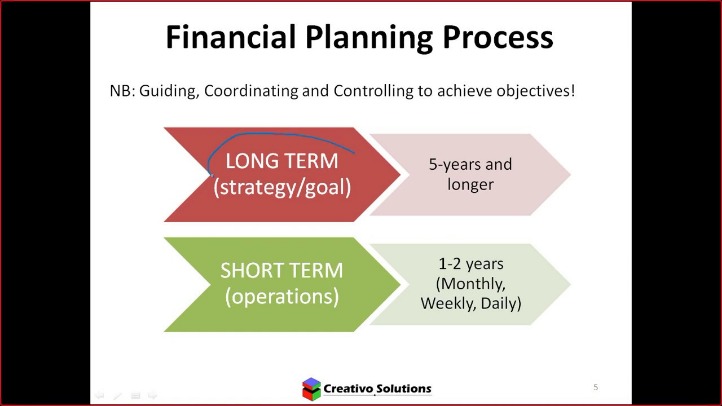A growing list of employers are creating financial well-being programs for employees as well. The issue of financial advisor compensation has come to the forefront in recent years. Beyond the traditional method of charging a percentage of AUM, there are commission-based, fee-only, and fee-based advisors. It’s important that you fully understand how any advisor you are considering will be paid. Beyond providing good advice, it’s important that you work with a financial advisor who helps you stay on track. Not only does this type of advisor provide advice and suggestions to help improve your overall financial situation, but they also follow up to be sure you are implementing their suggestions. They answer your questions and make sure their advice is easy to implement .
A financial advisor should be able to clearly explain their recommendations and suggested course of action to you. If you find your advisor is pushing proprietary products from their firm or seems intentionally vague about the benefits of their recommendations, perhaps it is time to find a new one—or not sign up with that person. A few well-known, highly successful financial advisors include Charles Schwab, Kenneth Fisher, and David Bach. These advisors have written numerous books on their financial strategies and how they can be applied to everyday life. The financial planning and advice industry is affected by external factors such as market performance, economic trends, and the overall state of the economy. Once you’ve identified the right clients and found the best way to attract them, it’s time to start filling those client coffers.
You need to keep applying and hope to luck out by connecting with the right seller. In addition, these services are better for smaller acquisitions, as larger deals usually go through more personal marketing channels. But just to be safe, you can ask where your advisor holds funds (assuming they will be managing assets for you—if not, it doesn’t matter).
A financial advisor will look at an individual’s assets, income, expenses, insurance policies, debts, and any other factors that may be relevant to their situation. The compensation, however, varies in the type of services that a financial advisor provides. Financial advisors are in the business of advising their clients on how to manage their money.
You’re getting clues about their profession, their overall income level or potential, their values, etc. But in some ways, focusing on introducing yourself to other people is looking at the problem from the wrong direction.
By selecting a niche market or demographic, you can offer highly tailored services that precisely address the unique needs and goals of your clients. This specialization enhances your ability to provide targeted advice and build lasting client relationships. To make infrequent consultations easier, Rebell suggests establishing a relationship with a financial planner or advisor you can reach out to in a pinch, even if you aren’t meeting regularly. Single or married, well-off or struggling, everyone can benefit from having a financial planner in their lives.
Our Recommended Advisors
These are services that would help individuals maintain their financial records. They may also help small businesses with accounting, taxes, payroll processing, and other related tasks. Financial advisors may also guide buyers through investing in stocks or bonds, work alongside lawyers who buy property, and help people set up retirement savings plans like Individual Retirement Accounts (IRAs).
What Is Wealth Management and Do You Need It?
Needless to say, you’ll want to get your money out of any firm you suspect of fraud as soon as possible. One of the biggest red flags in the investment world is if someone is offering guaranteed returns. There are safe investments and risky investments, but you should challenge anyone that says they have a guaranteed return for you. Bankrate follows a strict
editorial policy, so you can trust that our content is honest and accurate. Our award-winning editors and reporters create honest and accurate content to help you make the right financial decisions.
J.P. Morgan Private Client Advisor
Read more about Financial advisor New Zealand here. No one structure is “better” than another, but it’s important to understand how your financial advisor is compensated. Not having a 4-year degree doesn’t mean that you’re unqualified — but your prospective clients and employers won’t know that. Furthermore, formal education validates what you know about the industry, so you’ll be more confident when giving advice. Establishing what financial service you want to provide early on can help you focus on your goal and help you build your financial advisor career. While there are no specific educational requirements you must meet to be a financial advisor, your advice won’t be worth much if you have no credentials whatsoever.
Asking friends, family members, and colleagues is often a good place to start, as they can recommend local professionals they’ve had personal experience with. Hiring a financial advisor or a financial planner can help you achieve your short- or long-term goals — like having a comfortable retirement, funding your child’s college tuition, or buying a house. Additionally, financial advisors need to have excellent active listening skills to grasp the concerns, fears, and needs of clients and be able to propose personalized solutions that take them into account. A certified public accountant (CPA), on the other hand, is an accounting professional in the US who has passed the Uniform Certified Public Accountant Examination (Uniform CPA Exam) and met state licensing requirements. Certified public accountants offer accounting advice to companies and individuals alike and some financial advisors might have CPA certification. If you’re looking for a job, look for a firm that will pay for you to get licensed. A lot of firms are looking for people with sales backgrounds to sell their services, so if you have that experience, talk about it.






